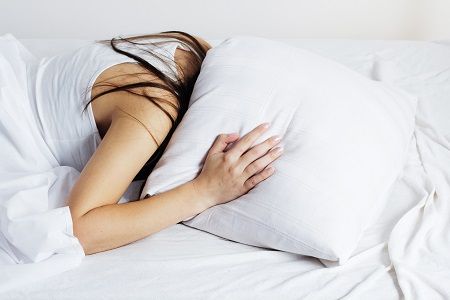Article
Sleep Disturbance and Depression Common in Patients Taking Buprenorphine
Author(s):
Previous studies have reported that between 75% and 84% of MMT patients report sleep difficulties, and the 71% of those receiving buprenorphine in the current study is comparable.

Patients who are being treated with buprenorphine commonly have depressive symptoms and sleep disturbance, according to a recent study of patients in primary care.
Opioid therapies are often prescribed for sleep disturbance due to their effect on multiple neurochemical pathways associated with sleep. Many previous studies have been conducted examining the association between disordered sleep and opioids, including methadone maintenance therapy (MMT); however, only one prior study examined the sleep of patients being treated with buprenorphine, which is not a full mu agonist.
“Our primary goal was to determine frequency of subjective sleep disturbance in a sample of patients receiving maintenance buprenorphine treatment and to examine factors potentially related to sleep disturbance,” researchers wrote.
Researchers anticipated patients receiving a higher dose of buprenorphine would have a higher rate of sleep disturbance and more depressive symptoms than those patients who did not have sleep disturbance.
A total of 328 participants were recruited from 3 primary care sites in New England, and had all been taking buprenorphine treatment for at least 1 month. The researchers collected personal information, as well as the length of time patients had been taking buprenorphine and their current dose.
Roughly a third of the participants (112, 34.2%) reported currently taking an antidepressant. The average length of time participants had been taking buprenorphine was 2.86 years, and the mean dose was 16.2 mg.
The researchers noted that “more than two-thirds of participants reported disturbed sleep,” and of those, there was a smaller proportion of males, and more people taking anti-depressants. Interestingly, patients reporting sleep disturbance also reported significantly fewer years in buprenorphine treatment.
Previous studies have reported that between 75% and 84% of MMT patients report sleep difficulties, and the 71% of those receiving buprenorphine in the current study is comparable.
“While it is unknown whether this frequency reflects a change inpatient experience from a time prior to treatment with buprenorphine, the high frequency of subjective sleep difficulties found here highlights the importance of assessing for sleep problems among buprenorphine patients in primary care settings,” researchers wrote.
In studies examining sleep difficulties among patients taking methadone or opioid medications, researchers found a positive correlation between dosage and sleep disturbance. However, that was not the case in the current study. The authors suggest 2 possibilities for this difference: a fundamental difference in how buprenorphine and other types of opioids function, or that there is a smaller range of variability in buprenorphine dosing.
There could be several explanations for the correlation between buprenorphine and sleep disturbance — including the possibility that longer treatment allows time for the resolution of other problems such as social or familial problems, or that patients who have sleep problems discontinue use of buprenorphine.
Ultimately, the data could not help researchers reach a conclusion on the connection.
The authors of the current study suggested that interventions that target disturbed sleep “may help opioid dependent patients stay in buprenorphine treatment and ameliorate depressive symptoms in this population.”
There are several limitations to the current study. Sleep difficulties were assessed by self-report, and only a brief measure was used. Additionally, though depressive measures were used, but no formal diagnostic criteria were used, nor were other medications or substances that could lead to sleep disturbances assessed. Timing of dose was not considered and there was no comparison group. Finally, the cross sectional design of the study limits interpretation.
In their conclusion, the authors noted findings do not support the assertion that “mediation treatment with buprenorphine causes sleep or mood disturbance, and drawing such conclusions without sufficient data could be potentially harmful to patients who may benefit from treatment with buprenorphine.”
Researchers stressed the need for additional studies.
The study, “The overlap of sleep disturbance and depression in primary care patients treated with buprenorphine,” was published online in the journal Substance Abuse last month.





